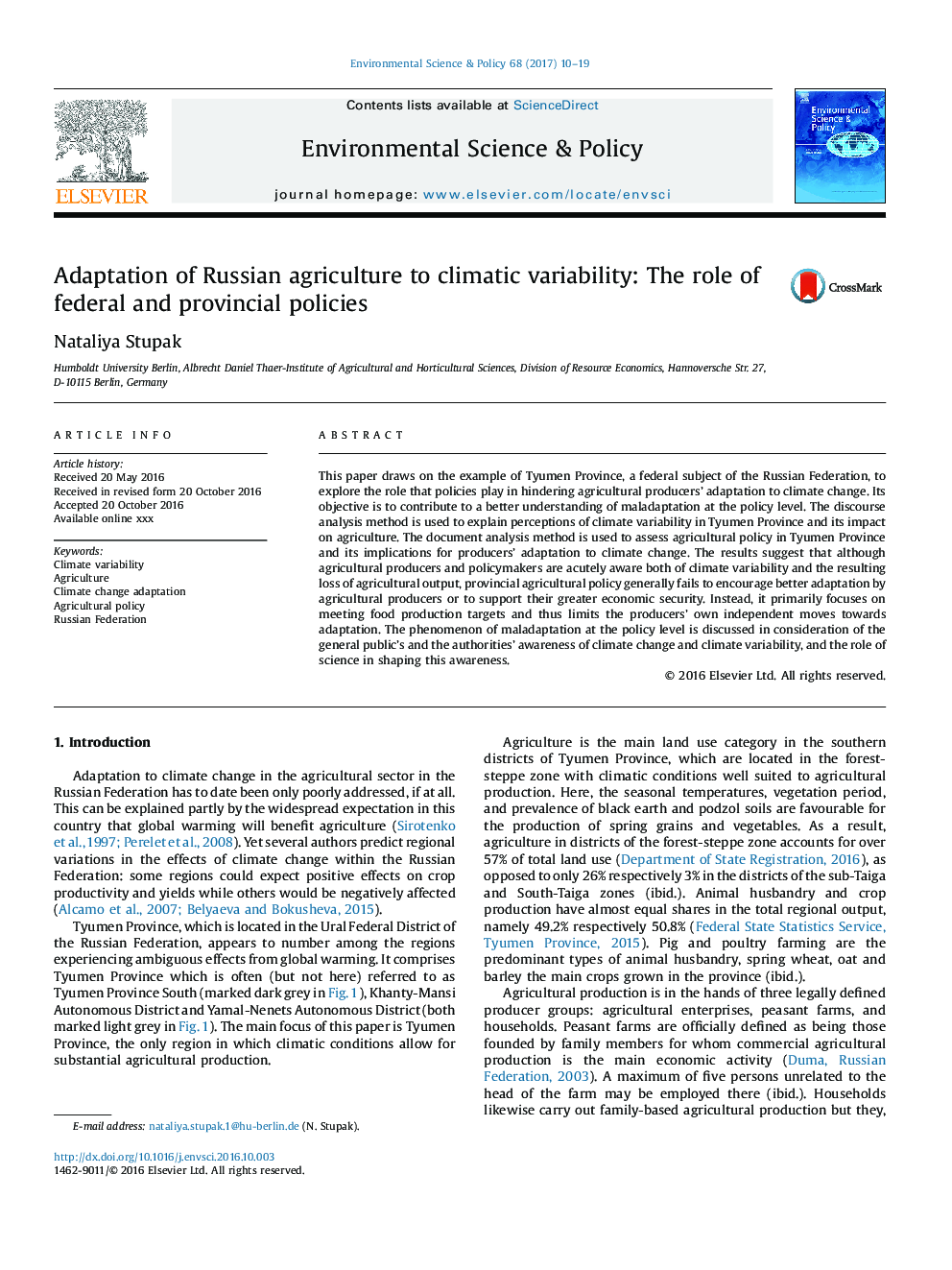| Article ID | Journal | Published Year | Pages | File Type |
|---|---|---|---|---|
| 5115831 | Environmental Science & Policy | 2017 | 10 Pages |
Abstract
This paper draws on the example of Tyumen Province, a federal subject of the Russian Federation, to explore the role that policies play in hindering agricultural producers' adaptation to climate change. Its objective is to contribute to a better understanding of maladaptation at the policy level. The discourse analysis method is used to explain perceptions of climate variability in Tyumen Province and its impact on agriculture. The document analysis method is used to assess agricultural policy in Tyumen Province and its implications for producers' adaptation to climate change. The results suggest that although agricultural producers and policymakers are acutely aware both of climate variability and the resulting loss of agricultural output, provincial agricultural policy generally fails to encourage better adaptation by agricultural producers or to support their greater economic security. Instead, it primarily focuses on meeting food production targets and thus limits the producers' own independent moves towards adaptation. The phenomenon of maladaptation at the policy level is discussed in consideration of the general public's and the authorities' awareness of climate change and climate variability, and the role of science in shaping this awareness.
Keywords
Related Topics
Physical Sciences and Engineering
Energy
Renewable Energy, Sustainability and the Environment
Authors
Nataliya Stupak,
